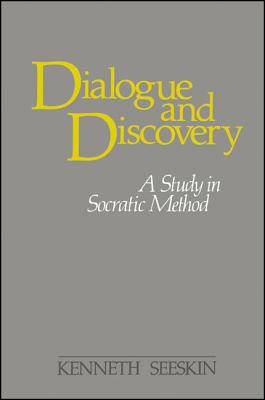
- Retrait gratuit dans votre magasin Club
- 7.000.000 titres dans notre catalogue
- Payer en toute sécurité
- Toujours un magasin près de chez vous
- Retrait gratuit dans votre magasin Club
- 7.000.0000 titres dans notre catalogue
- Payer en toute sécurité
- Toujours un magasin près de chez vous
Description
This book examines the Socratic method of elenchus, or refutation. Refutation by its very nature is a conflict, which in the hands of Plato becomes high drama. The continuing conversation in which it occurs is more a test of character than of intellect. Dialogue and Discovery shows that, in his conversations, Socrates seeks to define moral qualities--moral essences--with the goal of improving the soul of the respondent. Ethics underlies epistemology because the discovery of philosophic truth imposes moral demands on the respondent. The recognition that moral qualities such as honesty, humility, and courage are necessary to successful inquiry is the key to the understanding of the Socratic paradox that virtue is knowledge. The dialogues receiving the most emphasis are the Apology, Gorgias, Protagoras, and Meno.
Spécifications
Parties prenantes
- Auteur(s) :
- Editeur:
Contenu
- Nombre de pages :
- 179
- Langue:
- Anglais
- Collection :
Caractéristiques
- EAN:
- 9780887063374
- Date de parution :
- 02-01-87
- Format:
- Livre relié
- Format numérique:
- Genaaid
- Dimensions :
- 154 mm x 232 mm
- Poids :
- 385 g

Les avis
Nous publions uniquement les avis qui respectent les conditions requises. Consultez nos conditions pour les avis.






